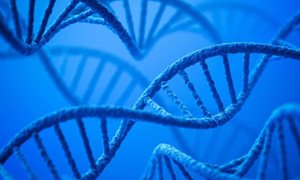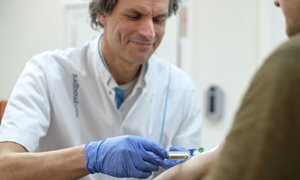28 March 2019
 The number of patients with severe intestinal failure (IF) has exponentially increased over the last decade.
The number of patients with severe intestinal failure (IF) has exponentially increased over the last decade.
Related news items

A great technology creating new dilemmas
20 December 2022Healthcare professionals are increasingly uncovering ‘unsolicited findings’ when performing a genetic test, which are disease-causing genetic variants unrelated to the initial question for which the genetic test was performed. This increase has led to a worldwide debate.
go to page




